Revolutionary War Military Quotes & Sayings
Enjoy reading and share 7 famous quotes about Revolutionary War Military with everyone.
Top Revolutionary War Military Quotes
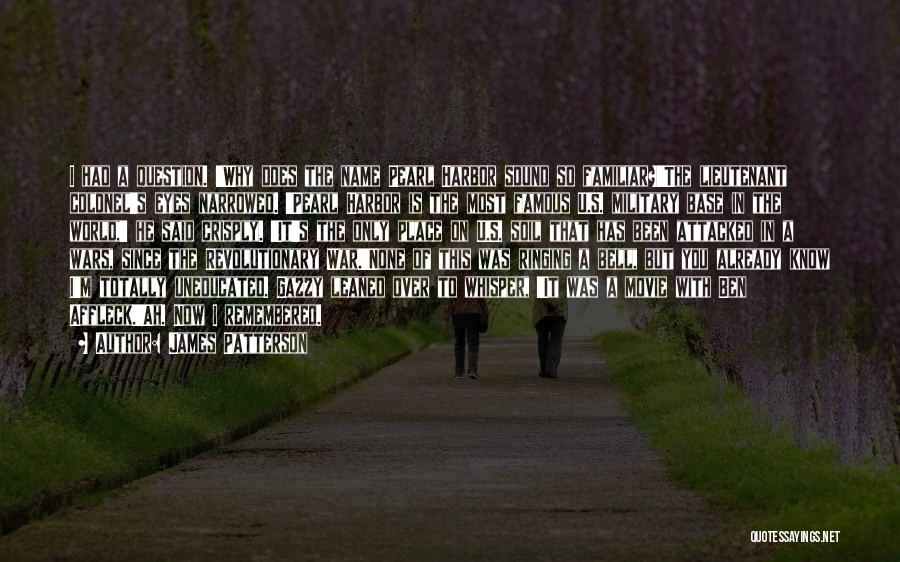
I had a question. 'Why does the name Pearl Harbor sound so familiar?'
The lieutenant colonel's eyes narrowed. 'Pearl Harbor is the most famous U.S. military base in the world,' he said crisply. 'It's the only place on U.S. soil that has been attacked in a wars, since the Revolutionary War.'
None of this was ringing a bell, but you already know I'm totally uneducated.
Gazzy leaned over to whisper, 'It was a movie with Ben Affleck.'
Ah. Now I remembered. — James Patterson
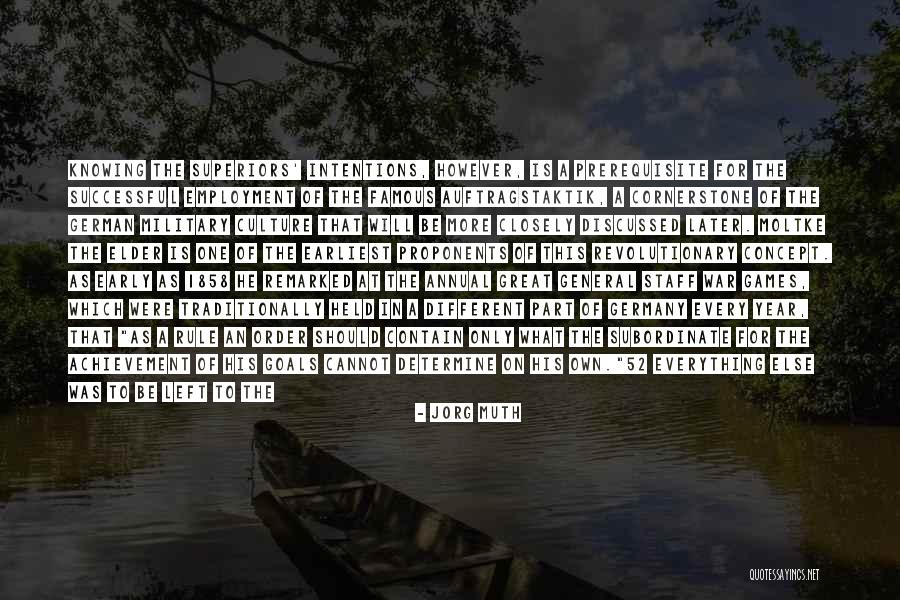
Knowing the superiors' intentions, however, is a prerequisite for the successful employment of the famous Auftragstaktik, a cornerstone of the German military culture that will be more closely discussed later. Moltke the Elder is one of the earliest proponents of this revolutionary concept. As early as 1858 he remarked at the annual Great General Staff war games, which were traditionally held in a different part of Germany every year, that "as a rule an order should contain only what the subordinate for the achievement of his goals cannot determine on his own."52 Everything else was to be left to the commander on the spot. — Jorg Muth
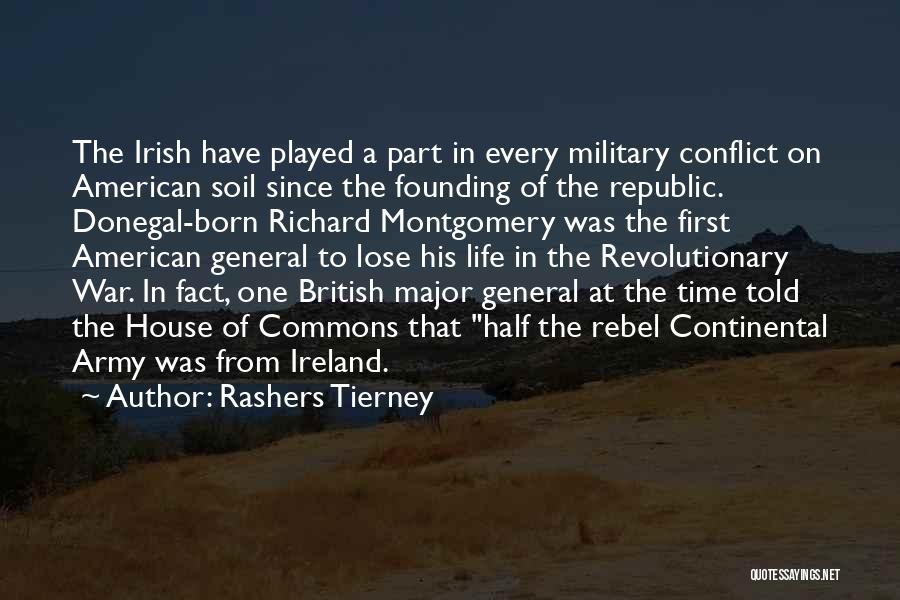
The Irish have played a part in every military conflict on American soil since the founding of the republic. Donegal-born Richard Montgomery was the first American general to lose his life in the Revolutionary War. In fact, one British major general at the time told the House of Commons that "half the rebel Continental Army was from Ireland. — Rashers Tierney

Revolutionary war is an antitoxin which not only eliminates the enemy's poison but also purges us of our own filth. — Mao Zedong
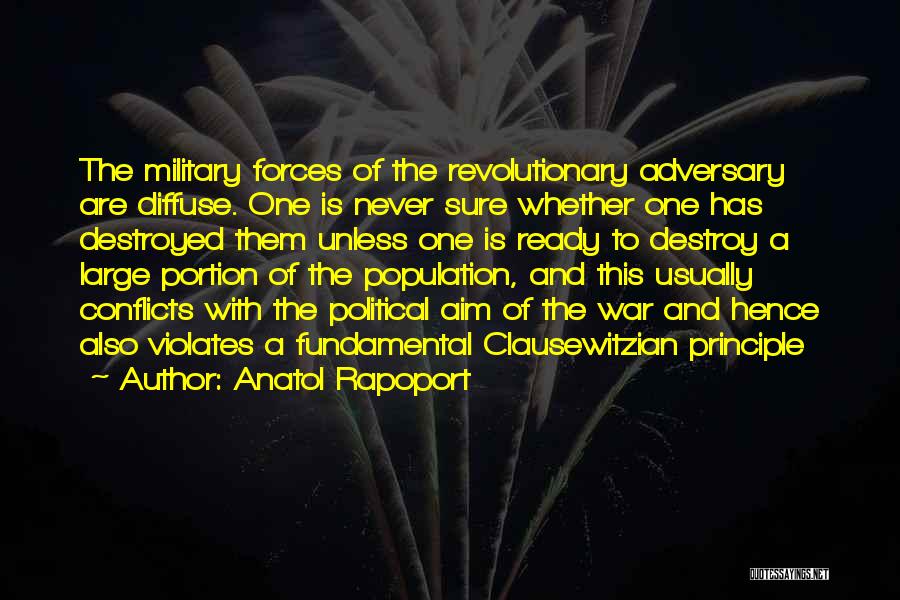
The military forces of the revolutionary adversary are diffuse. One is never sure whether one has destroyed them unless one is ready to destroy a large portion of the population, and this usually conflicts with the political aim of the war and hence also violates a fundamental Clausewitzian principle — Anatol Rapoport
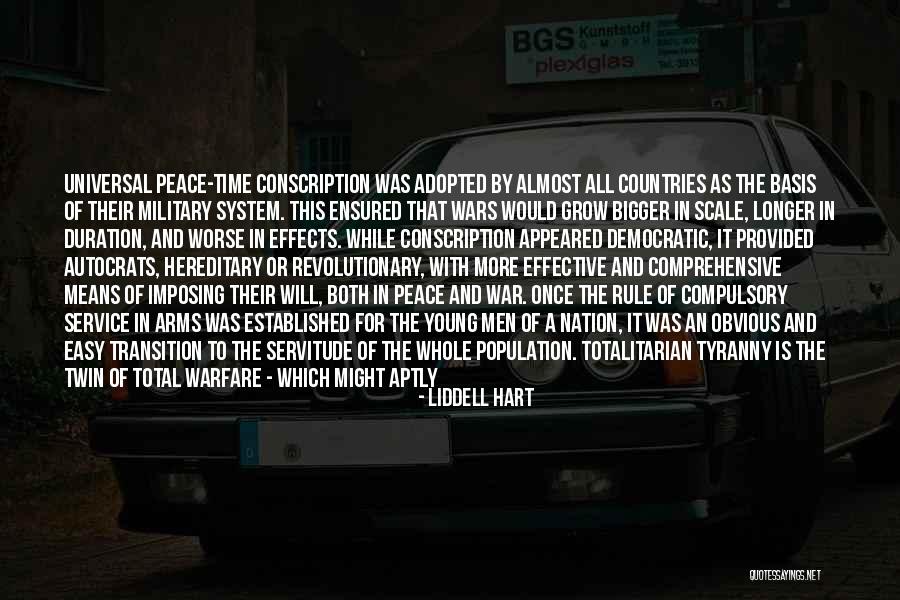
Universal peace-time conscription was adopted by almost all countries as the basis of their military system. This ensured that wars would grow bigger in scale, longer in duration, and worse in effects. While conscription appeared democratic, it provided autocrats, hereditary or revolutionary, with more effective and comprehensive means of imposing their will, both in peace and war. Once the rule of compulsory service in arms was established for the young men of a nation, it was an obvious and easy transition to the servitude of the whole population. Totalitarian tyranny is the twin of total warfare - which might aptly be termed a reversion to tribal warfare on a larger scale. — Liddell Hart
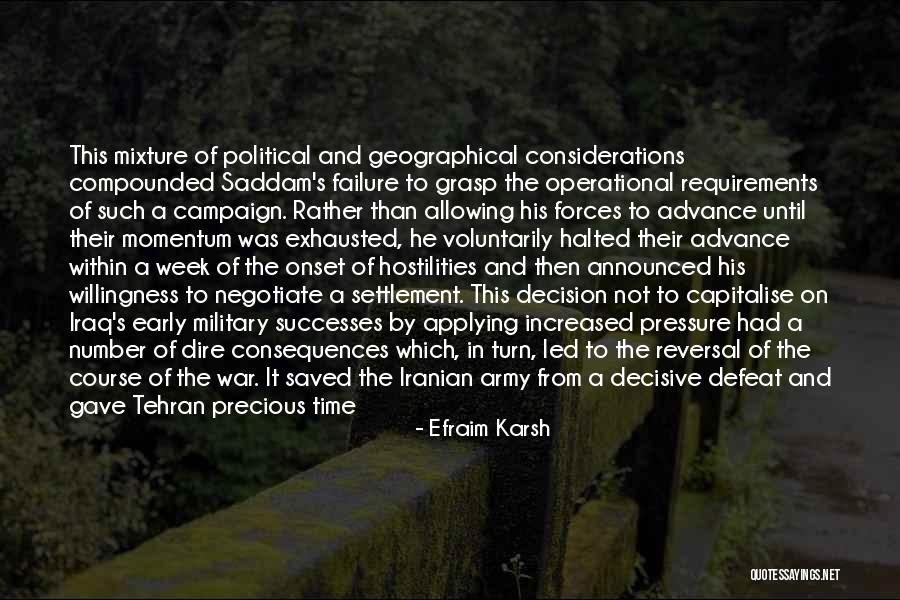
This mixture of political and geographical considerations compounded Saddam's failure to grasp the operational requirements of such a campaign. Rather than allowing his forces to advance until their momentum was exhausted, he voluntarily halted their advance within a week of the onset of hostilities and then announced his willingness to negotiate a settlement. This decision not to capitalise on Iraq's early military successes by applying increased pressure had a number of dire consequences which, in turn, led to the reversal of the course of the war. It saved the Iranian army from a decisive defeat and gave Tehran precious time to re-organise and regroup; and it had a devastating impact on the morale of the Iraqi army and hence on its combat performance. Above all, the limited Iraqi invasion did nothing to endanger the revolutionary regime, nor to drive Ayatollah Khomeini towards moderation. — Efraim Karsh





